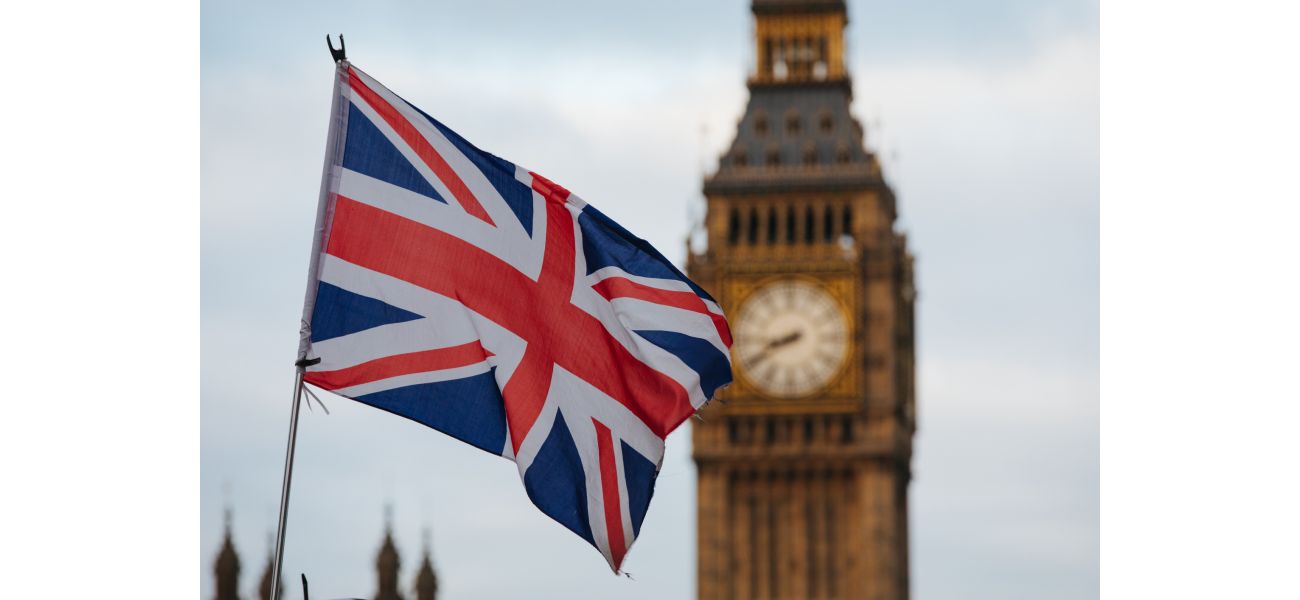Brits are less patriotic and I am happy about it.
Children are introduced to diverse perspectives in the classroom and this is beneficial overall.
September 3rd 2024.

Over the past decade, there has been a noticeable decline in the number of people who proudly wave the British flag and proclaim their patriotism. A recent study revealed that less than half of the nation would choose to be a British citizen over any other country. Furthermore, there has been a significant drop in the number of people who take pride in Britain's history. To be honest, these findings do not come as a surprise to me.
As someone in my twenties, I can attest to the fact that young people today, including my students, do not share the same idealistic view of Britishness that was prevalent in previous generations. And for me, that's a good thing. While our parents and grandparents may have been nationalistic and proud to wave the flag, our generation sees things differently.
In the past, there may have been a romanticized view of Britain's role in the world, influenced by postwar nostalgia and a glorified portrayal of our country in education and popular culture. However, the reality today is much different. Of course, there will always be those on the right who bemoan this decline in patriotism as a sign of eroding British values and another battleground in the culture wars. Nigel Farage, for example, released a video expressing his concern over children being taught to hate the UK.
But are they really being taught to hate the UK? Or are they simply being taught a more honest and unbiased version of British history? In my opinion, these findings show how far we have come as a society. Thanks to efforts to decolonize the curriculum and a change in attitudes within the education sector, there is now a greater focus on teaching children the truth about British history.
As a secondary school teacher, I see my students learning about Britain's involvement in the slave trade, colonialism, and world wars in a way that doesn't always portray the UK as the hero. This was something that was not taught in my own schooling just a couple of decades ago. In my subject, English, we no longer perpetuate the idea that only voices of a certain race, wealth, and nationality are of value. Instead, children are exposed to different perspectives and worldviews, which can only be a positive thing.
Of course, there are those on the right who accuse teachers like myself of promoting wokeism and radicalizing British children against their own country. But the truth is, this change in attitudes is not solely due to schools. The young people I teach are more globally connected than ever before, thanks to social media. They can see the impact of British policies in real-time, whether it's our involvement in conflicts or the legacy of colonialism.
While there is always a risk of misinformation, social media has also been a powerful tool for this generation to learn about complex issues in a way that traditional education cannot compete with. I have had thought-provoking conversations with my students about eurocentric beauty standards, the role of the monarchy, and democracy, all sparked by things they have learned online. This generation's understanding of Britishness is more nuanced and well-rounded because they can balance the idealistic view with the reality they see around them.
So, in my opinion, the decline in national pride is a small price to pay for a generation that is more aware of the world they live in than ever before. But it's not just about the past; it's also about the present. If we look around us, is the current state of Britain something to be proud of? This summer alone has shown us a vision of Britishness filled with tension and division, revealing nationalism to be a dangerous and divisive force.
The riots this summer only cemented my belief that certain aspects of the establishment have corrupted the idea of Britishness, turning it into something polarizing and short-sighted. For myself and many of my students, especially those from non-white ethnic backgrounds, British patriotism is now associated with racism, islamophobia, and violence. It's challenging to feel proud of a country that goes against our own experiences of discrimination and bigotry.
The reality is that the Britain that younger generations are growing up in is bleak. My students' entire lives have been shaped by austerity, isolationist policies like Brexit, dishonest politicians, and the constant reminders of war through their phones. When Britishness has come to mean spending millions on coronations and funerals for a wealthy family linked to colonialism while neglecting the most vulnerable in our society, closing our borders, and attacking those seeking refuge, it's hard to take pride in it.
So, this decline in pride for Britain's history is not a crisis or a sign of indoctrination; it's a sign that our children are finally getting a glimpse of the real world. Do you have a story to share? Please reach out by emailing us at Ross.email and share your thoughts in the comments below.
As someone in my twenties, I can attest to the fact that young people today, including my students, do not share the same idealistic view of Britishness that was prevalent in previous generations. And for me, that's a good thing. While our parents and grandparents may have been nationalistic and proud to wave the flag, our generation sees things differently.
In the past, there may have been a romanticized view of Britain's role in the world, influenced by postwar nostalgia and a glorified portrayal of our country in education and popular culture. However, the reality today is much different. Of course, there will always be those on the right who bemoan this decline in patriotism as a sign of eroding British values and another battleground in the culture wars. Nigel Farage, for example, released a video expressing his concern over children being taught to hate the UK.
But are they really being taught to hate the UK? Or are they simply being taught a more honest and unbiased version of British history? In my opinion, these findings show how far we have come as a society. Thanks to efforts to decolonize the curriculum and a change in attitudes within the education sector, there is now a greater focus on teaching children the truth about British history.
As a secondary school teacher, I see my students learning about Britain's involvement in the slave trade, colonialism, and world wars in a way that doesn't always portray the UK as the hero. This was something that was not taught in my own schooling just a couple of decades ago. In my subject, English, we no longer perpetuate the idea that only voices of a certain race, wealth, and nationality are of value. Instead, children are exposed to different perspectives and worldviews, which can only be a positive thing.
Of course, there are those on the right who accuse teachers like myself of promoting wokeism and radicalizing British children against their own country. But the truth is, this change in attitudes is not solely due to schools. The young people I teach are more globally connected than ever before, thanks to social media. They can see the impact of British policies in real-time, whether it's our involvement in conflicts or the legacy of colonialism.
While there is always a risk of misinformation, social media has also been a powerful tool for this generation to learn about complex issues in a way that traditional education cannot compete with. I have had thought-provoking conversations with my students about eurocentric beauty standards, the role of the monarchy, and democracy, all sparked by things they have learned online. This generation's understanding of Britishness is more nuanced and well-rounded because they can balance the idealistic view with the reality they see around them.
So, in my opinion, the decline in national pride is a small price to pay for a generation that is more aware of the world they live in than ever before. But it's not just about the past; it's also about the present. If we look around us, is the current state of Britain something to be proud of? This summer alone has shown us a vision of Britishness filled with tension and division, revealing nationalism to be a dangerous and divisive force.
The riots this summer only cemented my belief that certain aspects of the establishment have corrupted the idea of Britishness, turning it into something polarizing and short-sighted. For myself and many of my students, especially those from non-white ethnic backgrounds, British patriotism is now associated with racism, islamophobia, and violence. It's challenging to feel proud of a country that goes against our own experiences of discrimination and bigotry.
The reality is that the Britain that younger generations are growing up in is bleak. My students' entire lives have been shaped by austerity, isolationist policies like Brexit, dishonest politicians, and the constant reminders of war through their phones. When Britishness has come to mean spending millions on coronations and funerals for a wealthy family linked to colonialism while neglecting the most vulnerable in our society, closing our borders, and attacking those seeking refuge, it's hard to take pride in it.
So, this decline in pride for Britain's history is not a crisis or a sign of indoctrination; it's a sign that our children are finally getting a glimpse of the real world. Do you have a story to share? Please reach out by emailing us at Ross.email and share your thoughts in the comments below.
[This article has been trending online recently and has been generated with AI. Your feed is customized.]
[Generative AI is experimental.]
0
0
Submit Comment





